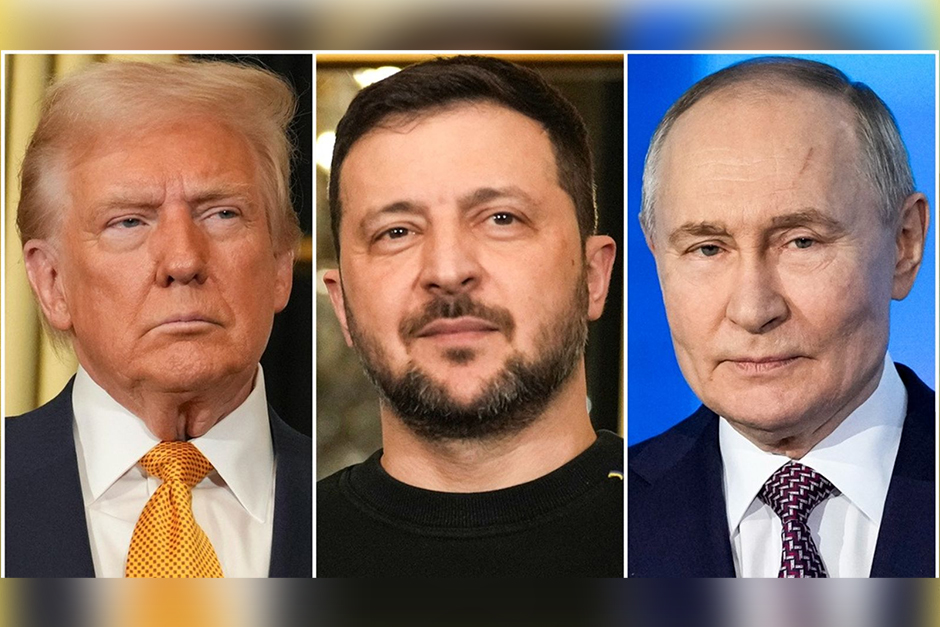The protracted conflict between Russia and Ukraine, which has reshaped geopolitical landscapes and global supply chains, appears to be at a new, potentially pivotal, juncture. Recent reports indicate a surprising turn of events: a proposed US peace plan has been met with an unexpected welcome from Russian President Vladimir Putin, who has termed it a “final settlement.” Adding another layer of complexity, former US President Donald Trump has publicly urged Ukrainian President Volodymyr Zelenskyy to respond to the proposal. This development has sent ripples across international diplomacy, prompting observers, including those in India, to keenly watch the unfolding narrative of what could be a significant diplomatic breakthrough or another fleeting hope.
A US Peace Plan: Moscow’s Unexpected Welcome
For over two years, the conflict in Eastern Europe has been characterized by intense military engagements, shifting front lines, and a seemingly insurmountable diplomatic stalemate. Multiple mediation efforts, from various international actors, have largely failed to yield a lasting ceasefire or a framework for peace. It is within this context that a new US peace proposal has emerged, though its precise details remain largely undisclosed to the public. However, the most striking aspect has been Moscow’s reaction.
President Putin’s characterization of the plan as a “final settlement” is particularly noteworthy. This phrase suggests a readiness to engage with a proposal that could potentially address Russia’s core security concerns and perhaps even the status of territories currently under Russian control. Analysts speculate that such a plan might involve elements like a ceasefire, demilitarization zones, security guarantees for both sides, and potentially a mechanism for the future status of disputed regions, without necessarily requiring an immediate, full withdrawal from all occupied territories – a key Ukrainian demand. Putin’s openness could signal a strategic shift, driven by various factors ranging from domestic pressures and economic considerations to a perceived window of opportunity with potential changes in Western leadership.
Trump’s Intervention and Zelenskyy’s Diplomatic Tightrope
The diplomatic push has been amplified by the vocal involvement of former US President Donald Trump. Known for his unconventional approach to foreign policy and his past interactions with both leaders, Trump has publicly pressed President Zelenskyy to engage with the US proposal. This intervention is significant, not least because Trump remains a powerful figure in US politics, with a potential return to the White House on the horizon. His urging adds a layer of American domestic political pressure onto Kyiv, which relies heavily on US military and financial aid.
President Zelenskyy now finds himself on a formidable diplomatic tightrope. On one hand, the prospect of a “final settlement” offers a pathway out of a devastating conflict that has ravaged his nation and claimed countless lives. On the other hand, accepting a peace plan that might involve territorial concessions or compromise on Ukraine’s sovereignty would be an incredibly difficult sell to his war-weary but resilient population and military. Ukraine’s consistent stance has been the restoration of its 1991 borders and full territorial integrity. Responding to a plan that falls short of these maximalist demands could be perceived as a betrayal of national sacrifice. Moreover, Zelenskyy must also navigate the expectations of his European allies, many of whom have pledged unwavering support for Ukraine’s sovereignty and territorial integrity.
“This is the time for serious talks. Zelenskyy needs to respond to this peace plan. The lives of millions depend on it,” a statement attributed to Donald Trump, underscoring the urgency he perceives in the situation.
India’s Stance: A Call for Dialogue
For India, a nation that has consistently advocated for diplomacy and dialogue since the conflict’s inception, these developments are being watched with keen interest. New Delhi has maintained a nuanced position, balancing its long-standing strategic ties with Russia with its growing partnership with the US and other Western nations. A tangible peace plan, even one fraught with complexities, aligns with India’s consistent calls for a cessation of hostilities and a return to the negotiating table.
The potential for de-escalation would be welcomed in India, as the conflict has had global ramifications on energy prices, food security, and the broader international order. India’s energy security, in particular, has been impacted, making any move towards stability attractive. However, India also remains cognizant of the intricate power dynamics at play and the potential implications of a new security architecture in Europe on its own strategic calculations and its vision for a multipolar world. The outcomes of these high-stakes diplomatic maneuvers will undoubtedly influence India’s foreign policy trajectory and its engagement with both Moscow and Washington in the coming years.
Conclusion: A Glimmer of Hope Amidst Uncertainty
The convergence of a US peace proposal, Putin’s unexpected reception, and Trump’s direct appeal to Zelenskyy marks a potentially transformative moment in the Russia-Ukraine conflict. While the path to genuine peace remains fraught with immense challenges and requires painful concessions from all parties, this new diplomatic opening offers a glimmer of hope that has been scarce in recent years. The global community now awaits Kyiv’s response, understanding that the decisions made in the coming weeks will not only determine the future of Ukraine but also profoundly impact the course of international relations for decades to come. The stakes are extraordinarily high, and the world watches as history potentially pivots.




